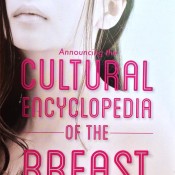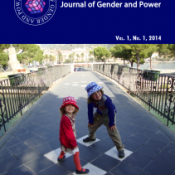Book Review: Cultural Encyclopedia of the Breast - Grazia De Michele PhD, August 9th, 2014 
The first of its kind, a timely and much needed contribution to studies of this renowned body part and its cultural significance. . . .the Cultural Encyclopedia of the Breast is an essential, empowering resource for anyone interested in understanding the historical magnitude and cultural importance of the breast.
— . . . → Read More: Book Review: Cultural Encyclopedia of the Breast
It’s Time for Us to Think About Cancer Differently - Posted By BCC Admin, August 8th, 2014 
“It’s Time for Us to Think About Cancer Differently.” By Paula Mejia, Newsweek.
Cancer is typically classified by where the cancerous tissues originated—so cells clustering in the lungs are called “lung cancer,” and those in the throat are “throat cancer.” But many kinds of cancer affect more than one kind of tissue, which can . . . → Read More: It’s Time for Us to Think About Cancer Differently
Prostate Cancer Screening Still Not Recommended for All - Posted By BCC Admin, August 6th, 2014 
“Prostate Cancer Screening Still Not Recommended for All.” By Tara Parker-Pope, The New York Times.
A major European study has shown that blood test screening for prostate cancer saves lives, but doubts remain about whether the benefit is large enough to offset the harms caused by unnecessary biopsies and treatments that can render men . . . → Read More: Prostate Cancer Screening Still Not Recommended for All
Study Shows Third Gene as Indicator for Breast Cancer - Posted By BCC Admin, August 6th, 2014 
“Study Shows Third Gene as Indicator for Breast Cancer.” By Nicholas Bakalar, The New York Times.
Mutations in a gene called PALB2 raise the risk of breast cancer in women by almost as much as mutations in BRCA1 and BRCA2, the infamous genes implicated in most inherited cases of the disease, . . . → Read More: Study Shows Third Gene as Indicator for Breast Cancer
Writing About Breast Cancer: From Books to Blogs - Ellen Leopold, PhD, July 29th, 2014 
Published on the Wellesley Centers for Women blog, Women = Books and reprinted with permission.
It’s easy to forget that women’s writing about breast cancer is of relatively recent vintage. But until the 1970s, the disease was the exclusive province of medical men—and their textbooks.
The first women to portray the patient’s perspective, to write . . . → Read More: Writing About Breast Cancer: From Books to Blogs
The Wrong Approach to Breast Cancer - Posted By BCC Admin, July 26th, 2014 
“The Wrong Approach to Breast Cancer.” By Peggy Orenstein, The New York Times.
I had a tiny, low-grade tumor in 1997; 15 years later, in the summer of 2012, while I was simultaneously watching “Breaking Bad,” chatting with my husband and changing into my pajamas, my finger grazed a hard knot . . . → Read More: The Wrong Approach to Breast Cancer
Dear patient: Your 5-minute appointment is awaiting you. - Posted By BCC Admin, July 25th, 2014 
“Dear patient: Your 5-minute appointment is awaiting you.” By Susan Hecker, KevinMD Blog.
Dear patient: I am writing to inform you of some recent changes to my practice. These changes have been implemented to improve the quality of your care.
This satirical letter to a patient is a poignant illustration of some of a major . . . → Read More: Dear patient: Your 5-minute appointment is awaiting you.
When a patient chooses a different path - Posted By BCC Admin, July 23rd, 2014 
“When a patient chooses a different path.” By Lori Marx-Rubiner, Reimagine Magazine.
I wish my support group had been able to honor Betty’s choice to not seek treatment.
One day, about 15 minutes before a support group session I was facilitating was scheduled to begin, Betty arrived. She was new to our group, and she . . . → Read More: When a patient chooses a different path
Cholesterol Molecule Influences Growth of ER+ Cancers - Jessica Werder MPH, July 20th, 2014 
In a large portion of human breast cancers, cancer growth is closely linked to the amount of estrogen in the body. For all intents and purposes, estrogen fuels growth in these Estrogen Receptor Positive (ER+) Cancers. However, a group of researchers recently discovered that another common molecule may play a similar role. When the body . . . → Read More: Cholesterol Molecule Influences Growth of ER+ Cancers
Gender Power and Feminisms in Breast Cancer Advocacy - Posted By BCC Admin, July 15th, 2014 
Lessons from the United States and Poland by Gayle Sulik (USA) and Edyta Zierkiewicz (Poland)
The United States breast cancer movement helped to transform breast cancer’s social and medical landscape domestically and, in some ways, internationally. However, differences in gender identities, power relations, and the role of feminism(s) cross‐culturally also shaped breast cancer advocacy itself. . . . → Read More: Gender Power and Feminisms in Breast Cancer Advocacy
|
|




